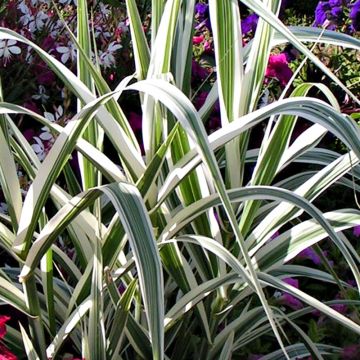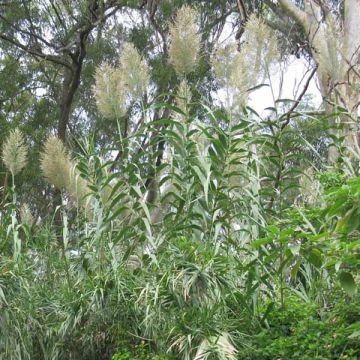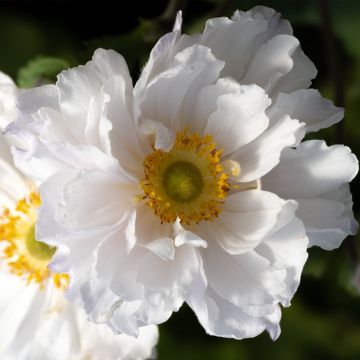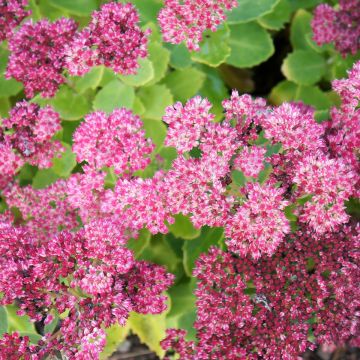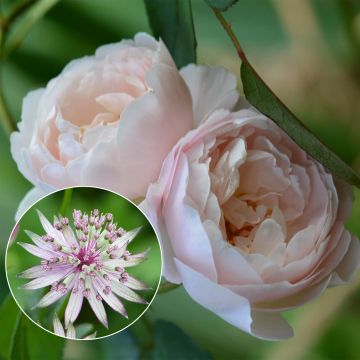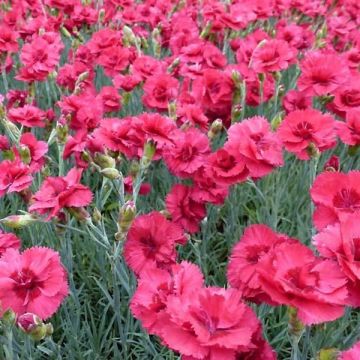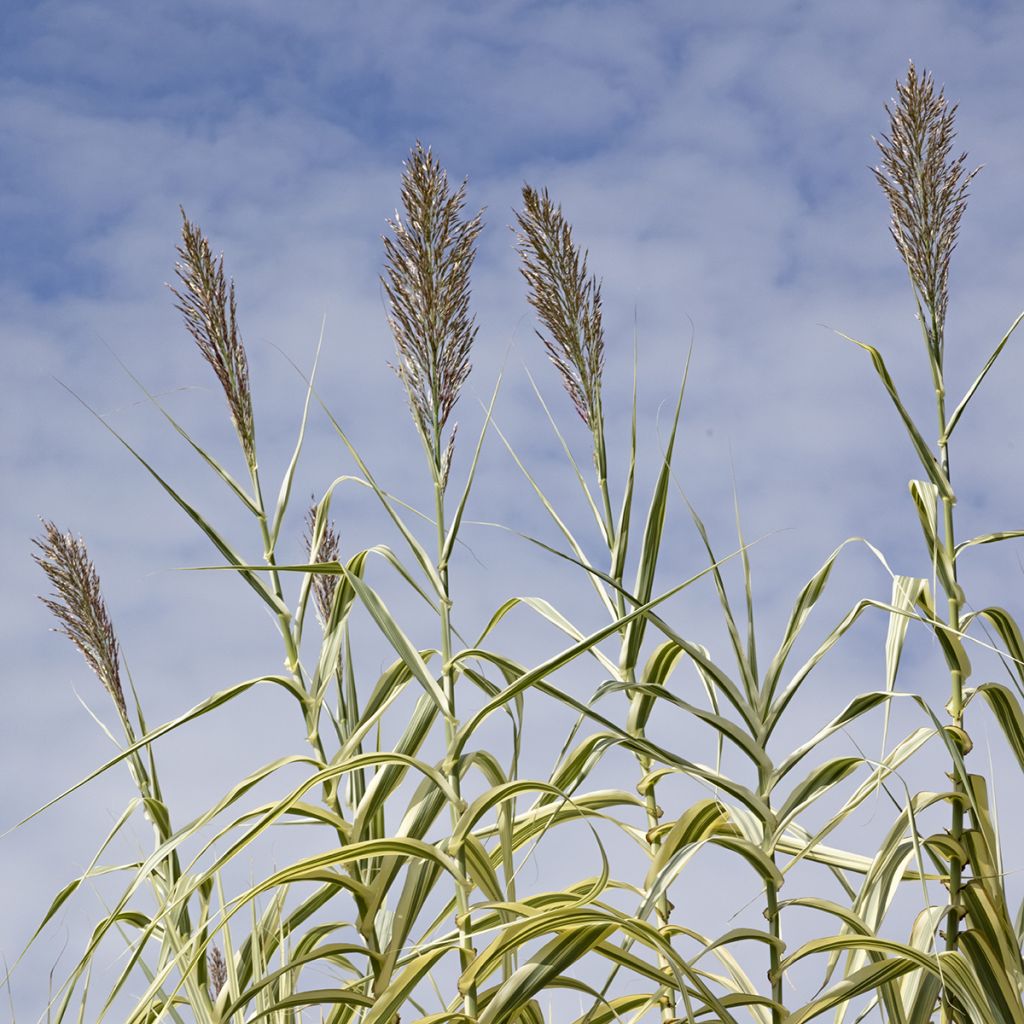

Arundo donax Aureovariegata
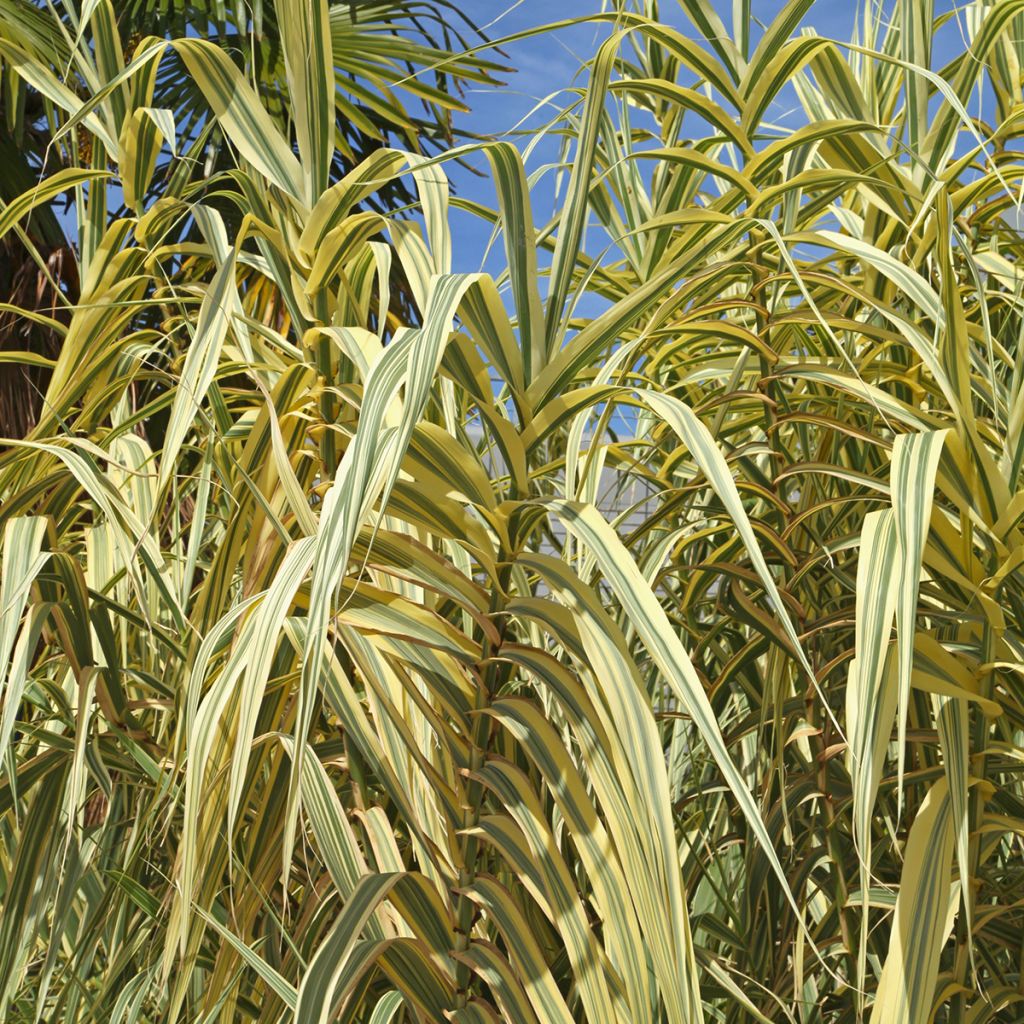

Arundo donax Aureovariegata
Arundo donax Aureovariegata
Arundo donax Aureovariegata
Young plant received in a small bucket, well bushy and beautiful roots. I am waiting for it to take root.
Nadia , 17/10/2020
Special offer!
Receive a €20 voucher for any order over €90 (excluding delivery costs, credit notes, and plastic-free options)!
1- Add your favorite plants to your cart.
2- Once you have reached €90, confirm your order (you can even choose the delivery date!).
3- As soon as your order is shipped, you will receive an email containing your voucher code, valid for 3 months (90 days).
Your voucher is unique and can only be used once, for any order with a minimum value of €20, excluding delivery costs.
Can be combined with other current offers, non-divisible and non-refundable.
Why not try an alternative variety in stock?
View all →This plant carries a 12 months recovery warranty
More information
We guarantee the quality of our plants for a full growing cycle, and will replace at our expense any plant that fails to recover under normal climatic and planting conditions.
Would this plant suit my garden?
Set up your Plantfit profile →
Description
The Arundo donax 'Aureovariegata' is a bright variegated form of the giant reed, with foliage and culms remarkably striped with cream-yellow on a green background. This perennial forms a giant clump with erect culms reaching almost 2m (7ft), bearing long deciduous, lanceolate and arching leaves. This majestic grass resembles tall bamboo or reeds and forms very effective and aesthetic screens at the back of a massif near the water. The hardiness of variegated varieties like this one is lower than that of the species. Thick mulching is recommended outside of mild climate regions. Otherwise, it is a robust plant that adapts to all moist to wet soils in full sun.
The Provence cane is also known as the giant reed. It is a perennial grass belonging to the large family of Poaceae. Its origins can be traced back to tropical Asia, but it has naturalised in many warm regions, particularly in subtropical climates. This plant is often found in marshes and can grow in various soil types, including sandy, loamy, poor, and limestone soils. The cultivar is a variation of this plant that is highly prized for its size and beautiful, variegated foliage.
The Arundo donax 'Aureovariegata', anchored on powerful trailing rhizomes, quickly forms a dense, very erect clump composed of woody and robust culms, reaching 3 to 4 cm (1 to 2in) in diameter. These culms can grow up to 1.8m (6ft) or even 2m (7ft) from the ground, and the base spreads without limit over time, although this variety is less vigorous than the species. This plant has long, segmented stems with leaves resembling corn. The stems and leaves change colour as they mature, from almost white to dark green with white-silver streaks, light green, cream, and finally yellow. The leaves are 40 cm (16 inches) long and 5 cm (2 inches) wide, with rough, sharp edges. The stems have pink reflections when they are young. The leaves come out from the nodes on the stem. They are evergreen in mild climates but deciduous in other regions. The 'Aureovariegata' giant reed rarely flowers at the end of summer, during long and hot summers. The plant produces long, pyramid-shaped panicles that look like feathers and are green at first but turn reddish-brown as they mature. The plant can be damaged by frost when it is young, but once established, its root system can handle short periods of freezing temperatures around -10°C.
The 'Aureovariegata' giant reed is a beautiful and grand grass perfect for large gardens and contemporary terraces. It is less invasive than other types of reeds but is highly ornamental and deserves a prominent place in any garden. It is best planted in the back of a massif, along a pond, or near a swimming pool as a permanent decoration. However, planting it with other plants can be challenging as it spreads and has a strong personality. It can be paired with hardy banana plants, large yellow-flowering daylilies, or colocasia in an exotic setting.
Report an error about the product description
Arundo donax Aureovariegata in pictures
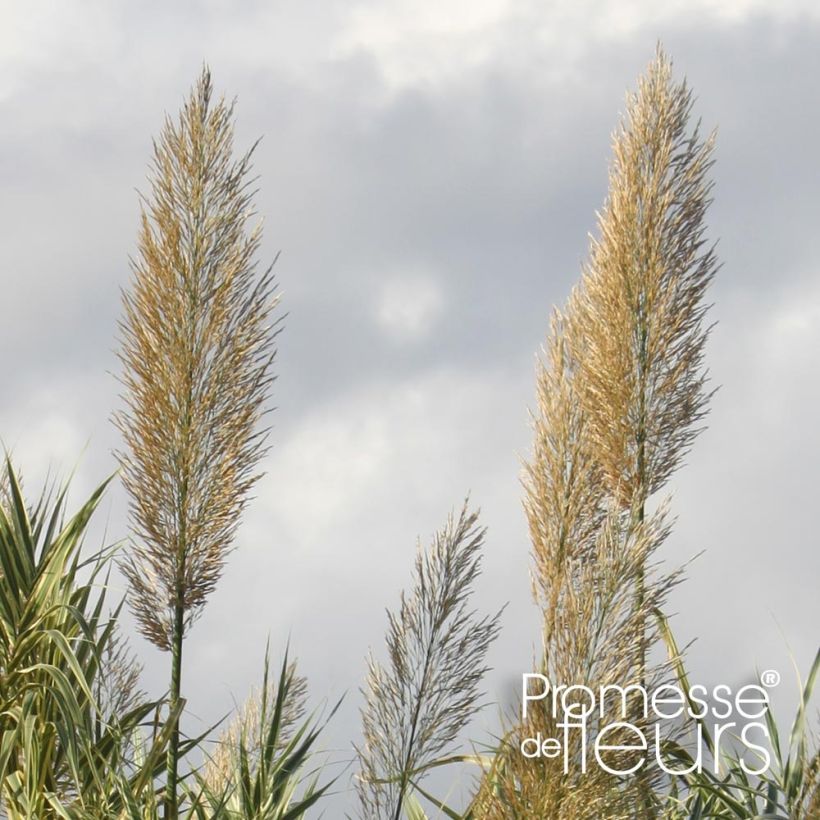

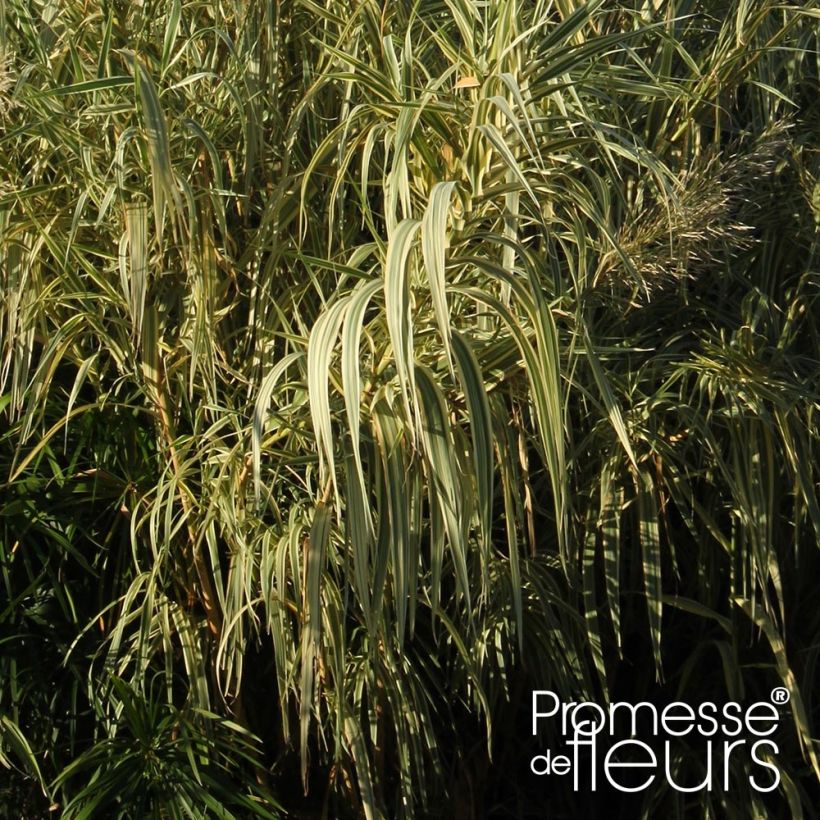

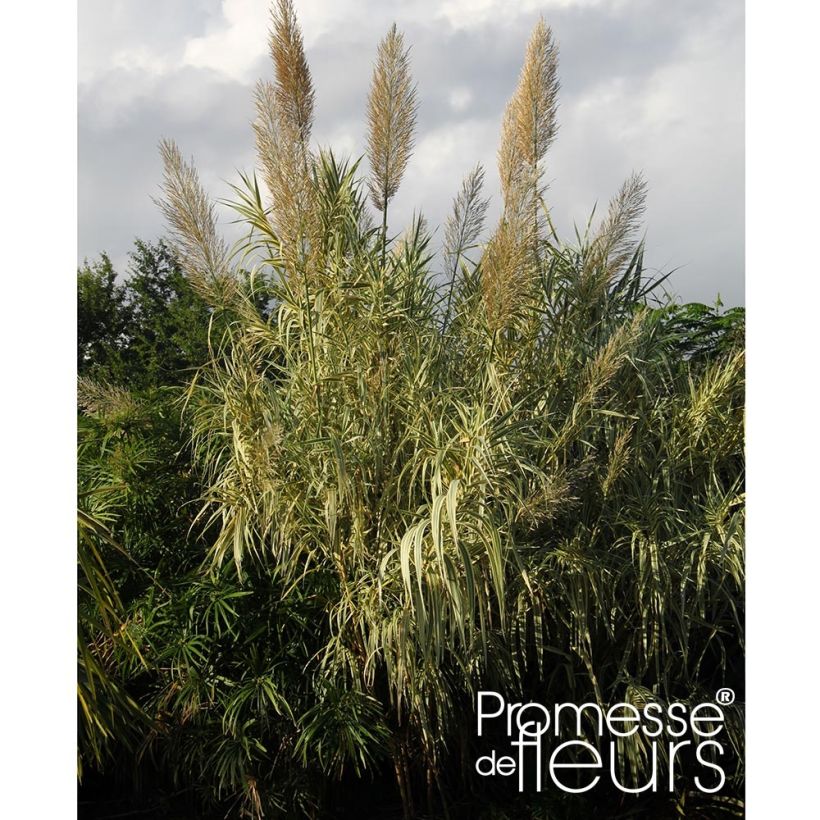

Flowering
Foliage
Plant habit
Botanical data
Arundo
donax
Aureovariegata
Poaceae
Cultivar or hybrid
Planting and care
The Arundo donax 'Aureovariegata' plant can grow in wet areas and rich soil and can handle dry periods once it's established. It can grow in different types of soil, such as limestone and clay, as long as the soil is prepared properly. It prefers a sunny or semi-shaded area and needs enough space to spread out. During mild winters, its leaves stay on for a long time. However, because it comes from the Mediterranean, it may not be able to handle cold weather. After 4 to 5 years, it can resist the cold better and handle temperatures as low as -10°C. If the cold weather damages its leaves, new ones can easily grow in the spring. A small piece of its cane, with a dormant bud but without leaves, can create a new plant within a few months. In colder areas, the base must be protected with a layer of dead leaves for the first 3 years. In other regions, when the temperature drops below -10°C, it needs to be protected with a layer of straw about 20cm thick.
Planting period
Intended location
Care
-
, onOrder confirmed
Reply from on Promesse de fleurs
Similar products
Haven't found what you were looking for?
Hardiness is the lowest winter temperature a plant can endure without suffering serious damage or even dying. However, hardiness is affected by location (a sheltered area, such as a patio), protection (winter cover) and soil type (hardiness is improved by well-drained soil).

Photo Sharing Terms & Conditions
In order to encourage gardeners to interact and share their experiences, Promesse de fleurs offers various media enabling content to be uploaded onto its Site - in particular via the ‘Photo sharing’ module.
The User agrees to refrain from:
- Posting any content that is illegal, prejudicial, insulting, racist, inciteful to hatred, revisionist, contrary to public decency, that infringes on privacy or on the privacy rights of third parties, in particular the publicity rights of persons and goods, intellectual property rights, or the right to privacy.
- Submitting content on behalf of a third party;
- Impersonate the identity of a third party and/or publish any personal information about a third party;
In general, the User undertakes to refrain from any unethical behaviour.
All Content (in particular text, comments, files, images, photos, videos, creative works, etc.), which may be subject to property or intellectual property rights, image or other private rights, shall remain the property of the User, subject to the limited rights granted by the terms of the licence granted by Promesse de fleurs as stated below. Users are at liberty to publish or not to publish such Content on the Site, notably via the ‘Photo Sharing’ facility, and accept that this Content shall be made public and freely accessible, notably on the Internet.
Users further acknowledge, undertake to have ,and guarantee that they hold all necessary rights and permissions to publish such material on the Site, in particular with regard to the legislation in force pertaining to any privacy, property, intellectual property, image, or contractual rights, or rights of any other nature. By publishing such Content on the Site, Users acknowledge accepting full liability as publishers of the Content within the meaning of the law, and grant Promesse de fleurs, free of charge, an inclusive, worldwide licence for the said Content for the entire duration of its publication, including all reproduction, representation, up/downloading, displaying, performing, transmission, and storage rights.
Users also grant permission for their name to be linked to the Content and accept that this link may not always be made available.
By engaging in posting material, Users consent to their Content becoming automatically accessible on the Internet, in particular on other sites and/or blogs and/or web pages of the Promesse de fleurs site, including in particular social pages and the Promesse de fleurs catalogue.
Users may secure the removal of entrusted content free of charge by issuing a simple request via our contact form.
The flowering period indicated on our website applies to countries and regions located in USDA zone 8 (France, the United Kingdom, Ireland, the Netherlands, etc.)
It will vary according to where you live:
- In zones 9 to 10 (Italy, Spain, Greece, etc.), flowering will occur about 2 to 4 weeks earlier.
- In zones 6 to 7 (Germany, Poland, Slovenia, and lower mountainous regions), flowering will be delayed by 2 to 3 weeks.
- In zone 5 (Central Europe, Scandinavia), blooming will be delayed by 3 to 5 weeks.
In temperate climates, pruning of spring-flowering shrubs (forsythia, spireas, etc.) should be done just after flowering.
Pruning of summer-flowering shrubs (Indian Lilac, Perovskia, etc.) can be done in winter or spring.
In cold regions as well as with frost-sensitive plants, avoid pruning too early when severe frosts may still occur.
The planting period indicated on our website applies to countries and regions located in USDA zone 8 (France, United Kingdom, Ireland, Netherlands).
It will vary according to where you live:
- In Mediterranean zones (Marseille, Madrid, Milan, etc.), autumn and winter are the best planting periods.
- In continental zones (Strasbourg, Munich, Vienna, etc.), delay planting by 2 to 3 weeks in spring and bring it forward by 2 to 4 weeks in autumn.
- In mountainous regions (the Alps, Pyrenees, Carpathians, etc.), it is best to plant in late spring (May-June) or late summer (August-September).
The harvesting period indicated on our website applies to countries and regions in USDA zone 8 (France, England, Ireland, the Netherlands).
In colder areas (Scandinavia, Poland, Austria...) fruit and vegetable harvests are likely to be delayed by 3-4 weeks.
In warmer areas (Italy, Spain, Greece, etc.), harvesting will probably take place earlier, depending on weather conditions.
The sowing periods indicated on our website apply to countries and regions within USDA Zone 8 (France, UK, Ireland, Netherlands).
In colder areas (Scandinavia, Poland, Austria...), delay any outdoor sowing by 3-4 weeks, or sow under glass.
In warmer climes (Italy, Spain, Greece, etc.), bring outdoor sowing forward by a few weeks.































